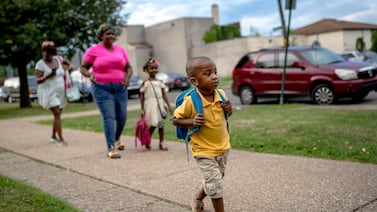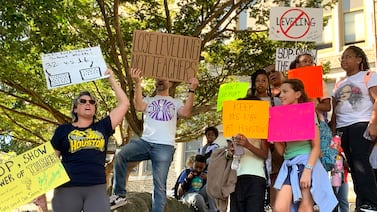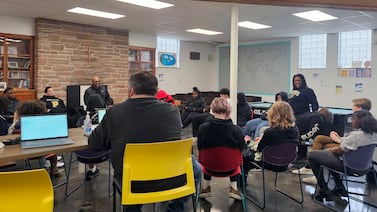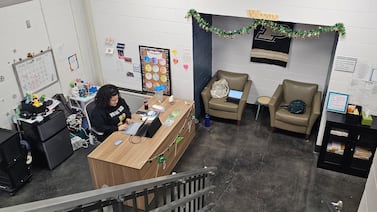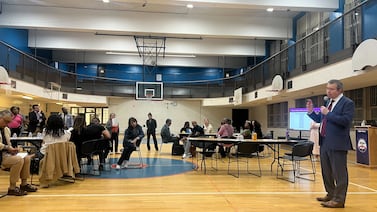Indiana senators were scheduled to discuss Wednesday the latest bill to ban certain topics on race and racism from K-12 classrooms, but pulled the bill from the agenda shortly beforehand.
The abrupt change in plans by the Senate Committee on Education and Career Development came after a Tuesday rally by groups opposed to such legislation.
Senate Bill 386 seeks to prohibit schools from teaching that a group of people is inherently superior or inferior to another, or that they deserve adverse or unequal treatment, based on a long list of characteristics: age, sex, gender identity, sexual orientation, race, creed, color, marital status, familial status, mental or physical disability, religion, or national origin.
The bill is similar to failed legislation from last year that was part of a spate of such proposals in statehouses nationwide. Indiana’s GOP-controlled legislature quashed the proposal after widespread criticism, despite expectations that the state would join other red states in passing laws often ascribed to a backlash against critical race theory.
The 2022 version of the proposal differed slightly from this year’s bill. It sought to prohibit the teaching of seven concepts related to race, including that students should feel discomfort or guilt on the basis of their identity.
Though the Indiana legislature is considering a number of other bills related to how schools can approach topics like identity in schools, SB 386 was the first to be scheduled for a hearing. It’s unclear if lawmakers will return to the bill in next week’s education committee meeting — the last opportunity for bills to be heard in committee before reading deadlines the following week.
This year’s bill drew condemnation Tuesday from a coalition of groups, including the Indiana State Teachers Association, the Indianapolis NAACP, the Indianapolis Urban League, and others.
Those groups were also key to defeating last year’s legislation, House Bill 1134. They called the new bill unnecessary and “ignorant.”
The coalition also drew attention to an amendment to the bill that was circulated but not posted online that sought to change the bill to focus only on race and color.
“The legislation is in a different package with a new bow, a harmless sounding name, but nevertheless, it is as harmful as prior legislation, even more so because it targets race,” said Gwen Kelley of the Indianapolis NAACP.
Wednesday was the first scheduled hearing for this year’s bill on the topic.
In a statement on why the bill was dropped from the agenda, author Sen. Jeff Raatz, a Richmond Republican and chair of the Senate education committee, said he would “continue having conversations” about making classrooms a place where all children could learn and thrive.
Raatz’s statement did not address whether the bill would return for next week’s hearing. Raatz’s office did not respond to Chalkbeat’s request for comment about the amendment.
The legislature is considering several other bills that would affect how schools can discuss topics like sexual orientation and gender identity in K-12 classrooms. Those bills are also still awaiting a hearing.
Chalkbeat Indiana Bureau Chief MJ Slaby contributed to this story.
Aleksandra Appleton covers Indiana education policy and writes about K-12 schools across the state. Contact her at aappleton@chalkbeat.org.



